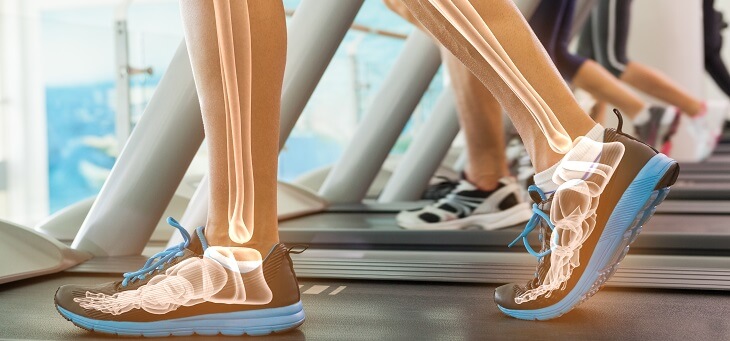Bones play an important role in the overall function of the body, yet many people don’t give their bones a second thought – until they reach a certain age.
Your bones continuously change throughout adulthood. Bone mass reaches its peak at age 30, then bone production slows, meaning the recovery period for broken bones and fractures also slows.
Poor bone density may cause conditions such as osteoporosis, scoliosis and bone cancers. Maintaining strong and healthy bones will protect against fragility and injury to your body’s vital organs, such as the heart and brain.
Moreover, good bone health will ensure that your bones continue to carry out a vital function – bones store and release minerals into the body when they’re required, including calcium and phosphorous.
Read: Link between your neighbourhood and your health
Although developing these conditions can also be attributed to several factors out of your control, including your sex, age, race, family history and body frame size, there are steps you can take to keep your bones strong, healthy and reduce deterioration.
These are my five tips for good bone health.
1. Eat a calcium-rich diet
To build or maintain strong healthy bones, it is essential that you meet your daily calcium requirements. Approximately 99 per cent of the body’s calcium is contained in our bones, contributing to its strength and structure.
The body is unable to produce its own calcium, so you must consume calcium to maintain healthy bone mass. A diet that is low in calcium may diminish bone density and increase the likelihood of experiencing fractures. It is advised that adults between the ages of 19 and 70 consume 1000mg of calcium per day, and those aged 71 and above consume 1200mg per day.
This recommended intake consists of two serves of dairy and one serve of other calcium-rich foods, such as broccoli, beans, almonds, tinned salmon or sardines.
Read: Where does heartburn start and how do you stop it
2. Watch your vitamin D levels
Vitamin D is required to absorb and regulate calcium levels in the blood. The body absorbs most of its vitamin D when exposed to the sun’s ultraviolet radiation. Understanding your vitamin D levels is important to ensure your body is effectively absorbing your calcium intake.
I recommend visiting your doctor at least once a year for a blood test to determine your vitamin D levels. If a deficiency is discovered, your doctor may advise you to take vitamin D supplements, spend more time outdoors or increase your consumption of vitamin D rich foods, such as oily fish, mushrooms, eggs and milk.
3. Do regular weight-bearing exercises
Weight-bearing exercises require your bones and muscles to work against gravity and the stress applied to the bones during these exercises facilitates bone growth and bone density maintenance.
Women naturally have lower bone density than men and I advise them to perform weight-bearing and resistance exercises regularly to prevent osteoporosis. Walking, climbing stairs, dancing, pilates and weightlifting are all examples of physical activities that require your bones to respond to pressure.
Read: Aussie scientists uncover disease-busting proteins
4. Avoid or limit your alcohol and tobacco consumption
Excessive alcohol consumption has been linked to an increased likelihood of attaining osteoporotic fractures. In a similar vein, studies have found that tobacco consumption produces an imbalance in bone turnover.
Smoking indirectly affects bone density as it alters the body weight and increases oxidative stress on the body, which can lower your antioxidant levels. Smoking can also alter the hormone-vitamin D axis, which helps the body maintain optimum calcium levels. I advise abstaining from alcohol and tobacco consumption to avoid the probability of developing serious bone-related conditions.
5. Check if your medication affects bone density
Various prescription medications may affect the body’s bone density, including long-term use of corticosteroid medications, which can be used to treat asthma, and thyroxine, which treats hypothyroidism.
Other medicines that may increase the risk of osteoporosis include aromatase inhibitors, prescribed to treat breast cancer in postmenopausal women; selective serotonin re-uptake inhibitors, prescribed to treat depression; the chemotherapy drug methotrexate, and some anti-seizure medications.
Speak to your doctor if you’re concerned that your prescription medication may be affecting your bone health.
Dr Andrew Thompson is the medical director at telehealth and prescription service InstantScripts. He has had nearly a decade of experience, including as an anaesthetist, in paediatrics, cardiology, trauma and neurosurgery departments.
If you enjoy our content, don’t keep it to yourself. Share our free eNews with your friends and encourage them to sign up.
Disclaimer: This article contains general information about health issues and is not advice. For health advice, consult your medical practitioner.

